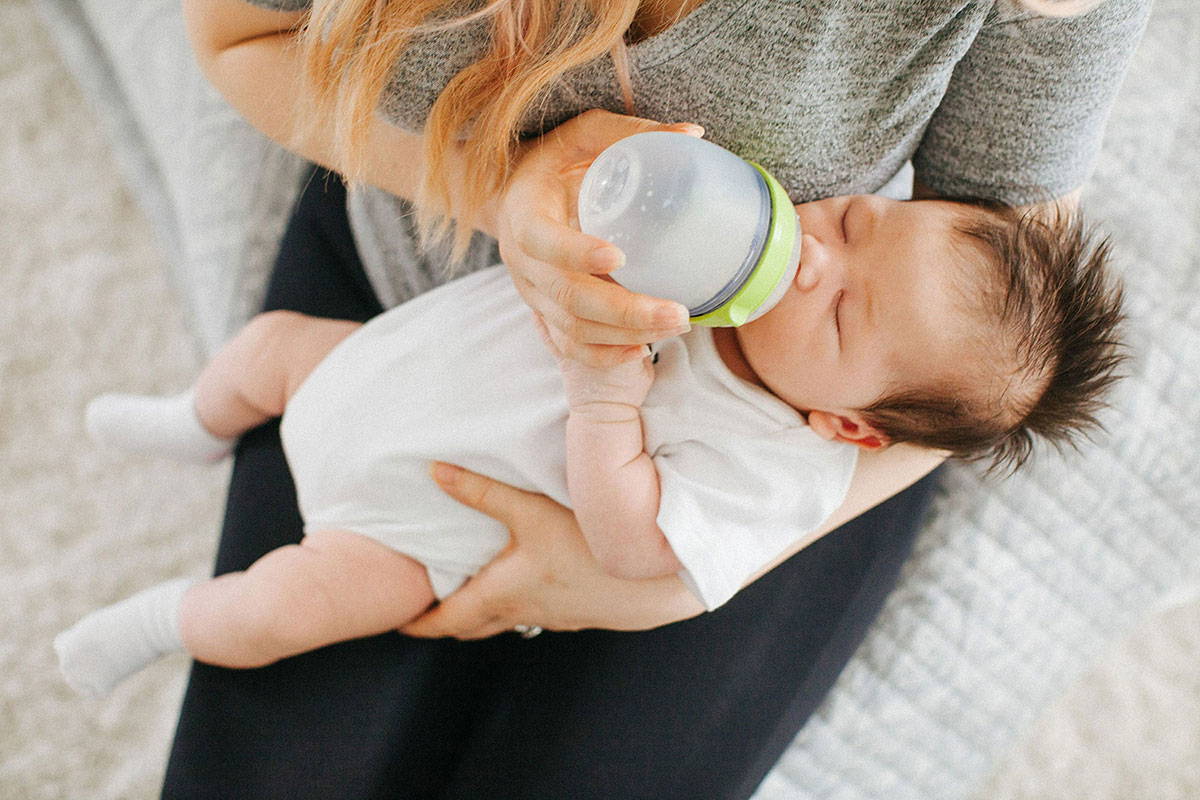
Your Growing Baby and the Importance of Vitamin D
| Pregnancy |
I’m often asked for resources about vitamin D for breastfeeding babies. Since I’m a postpartum doula, I don’t give medical advice, but I do pass along resources and encourage my clients to discuss them with their pediatrician.
A few years ago a study came out about maternal versus infant supplement of vitamin D which concludes, “Maternal vitamin D supplementation with 6400 IU/day safely supplies breast milk with adequate vitamin D to satisfy her nursing infant’s requirement and offers an alternate strategy to direct infant supplementation.” That was great news for my clients, since giving a newborn supplemental drops can be messy and easy to forget.
While we know that vitamin D is important for growing babies, did you know that it is also important during pregnancy? If you are currently pregnant, especially if you live in a northern state like Michigan, it is important to make sure you are getting enough vitamin D3 in your prenatal supplements. As a postpartum doula, I serve the Metro Detroit area, so it’s important to me that my fellow Michiganders and my future clients are aware that for most of the year, we can’t get enough vitamin D into our bloodstream through sun exposure alone. We are too far north.
There are numerous reasons why adequate vitamin D is important during pregnancy. From improving pregnancy mood to increasing a pregnant mother’s chances of fighting off the flu, vitamin D levels matter. Now, researchers have found a new reason to make sure that our vitamin D levels are high enough during pregnancy.
A new study, published in the British Journal of Nutrition reports that vitamin D-deficiency in expectant moms has a negative effect on the motor skill development and social development of their children that is noticeable by pre-school.
Researchers from the University of Bristol and the University of Surrey found that when pregnant women had vitamin D levels lower than 50 nmol per liter of blood during pregnancy, their children were more likely to end up in the bottom 25th percentile in preschool developmental tests for gross and fine motor development. The researchers looked at data from more than 7,000 child-mother pairs and accounted for other variables. The study was done after earlier research in animal studies showed that neurocognitive delays were more common among vitamin D deficient animals’ offspring.
“The importance of vitamin D sufficiency should not be underestimated. It is well-known to be good for our musculoskeletal systems, but our research shows that if levels are low in expectant mothers, it can affect the development of their children in their early years of life,” Dr. Andrea Darling, lead author of the report wrote.
Many years ago, women were more inclined to consume cod liver oil, salmon, and sardines. If you are pregnant and haven’t thought about your vitamin D levels, I urge you to consider discussing testing and supplementing with your medical professional. If you know someone who is expecting, please pass this post along to them right away!
As new and expecting parents it can be challenging to stay up to date with the latest research. One of the benefits of working with a trained, and/or certified postpartum doula is that we do ongoing continuing education and pass that knowledge on to our clients. Since we are non-medical we don’t prescribe or diagnose but instead share information and resources so each client can make decisions that work best for their family.
Jill Reiter
Jill Reiter is a Certified Postpartum Doula/CAPPA Postpartum Doula Faculty and founder of The After Baby Lady. Postpartum Doula Services in Metro Detroit, Michigan. As a mother of four children, Jill acknowledges the importance of support women needs in their early days of parenting. She is passionate about empowering parents with support, so that they can truly cherish the first few weeks of their child’s life. Her clients describe her as calming, warm, filled with compassion, and very responsive. In addition, Jill’s mission is to raise awareness about the support that postpartum doulas offer. ”



